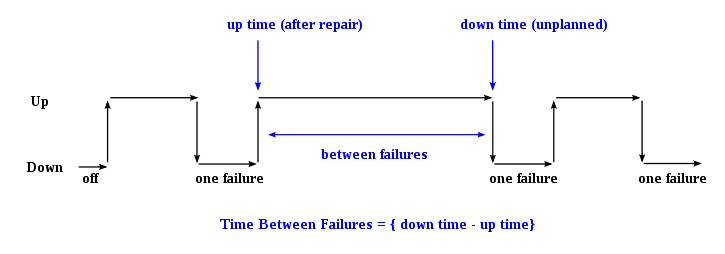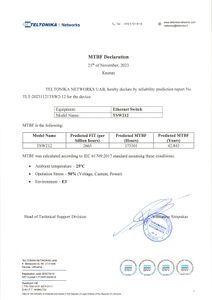TSW212 MTBF: Difference between revisions
No edit summary |
No edit summary |
||
| Line 25: | Line 25: | ||
==Attachments== | ==Attachments== | ||
{|style="margin: 0 auto;valign="left"" | {|style="margin: 0 auto;valign="left"" | ||
| [[File:TSW212 | | [[File:MTBF TSW212-1.jpg|thumb|left|300px|x300px|TSW212 MTBF]] | ||
|} | |} | ||
You can the find PDF version of the Declaration of TSW212 MTBF declaration '''[[ | You can the find PDF version of the Declaration of TSW212 MTBF declaration '''[[MTBF TSW212.pdf|here]]'''. | ||
==External links== | ==External links== | ||
{{MTBF links}} | {{MTBF links}} | ||
[[Category:TSW212 Nomenclature, Classification codes]] | [[Category:TSW212 Nomenclature, Classification codes]] | ||
Revision as of 14:37, 22 November 2023
TSW212 Nomenclature, Classification codes > TSW212 MTBFMTBF approval.
Description
Mean time between failures (MTBF) is the predicted elapsed time between inherent failures of a mechanical system, during normal system operation. MTBF can be calculated as the arithmetic mean (average) time between failures of a system. The term is used in both plant and equipment maintenance contexts. For example, three identical systems starting to function properly at time 0 are working until all of them fail. The first system failed at 100 hours, the second failed at 120 hours and the third failed at 130 hours. The MTBF of the system is the average of the three failure times, which is 116.667 hours.
In general, MTBF is the "up-time" between two failure states of a repairable system during operation as outlined here:

Attachments
 |
You can the find PDF version of the Declaration of TSW212 MTBF declaration here.
